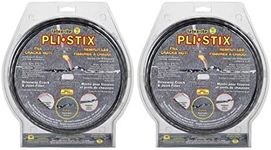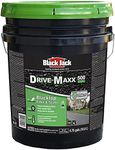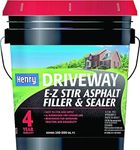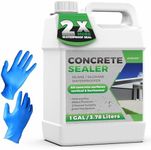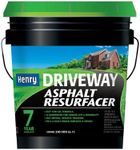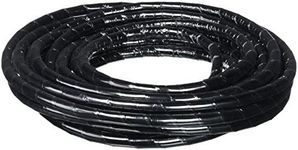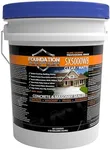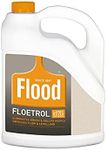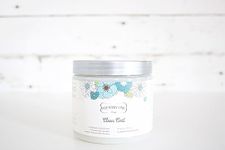Buying Guide for the Best Driveway Sealers
Choosing the right driveway sealer is essential to protect your driveway from the elements, enhance its appearance, and extend its lifespan. When selecting a driveway sealer, it's important to consider several key specifications to ensure you get the best product for your needs. Understanding these specifications will help you make an informed decision and achieve the best results for your driveway.Type of SealerDriveway sealers come in different types, including asphalt-based, coal tar-based, acrylic, and epoxy. The type of sealer is important because it determines the level of protection and durability. Asphalt-based sealers are popular for their ease of application and affordability, while coal tar-based sealers offer superior protection against oil and gasoline spills. Acrylic sealers provide a glossy finish and are UV-resistant, making them ideal for areas with high sun exposure. Epoxy sealers are the most durable but also the most expensive. Choose a sealer type based on the specific needs of your driveway and the environmental conditions it will face.
Drying TimeDrying time refers to how long it takes for the sealer to dry and be ready for use. This is important because it affects how soon you can use your driveway after application. Drying times can range from a few hours to a couple of days. If you need to use your driveway quickly, look for a sealer with a shorter drying time. However, keep in mind that faster drying times may require more precise application to avoid uneven coverage.
Coverage AreaCoverage area indicates how much surface area a given amount of sealer can cover. This is important for estimating how much product you will need to purchase. Coverage is usually measured in square feet per gallon. To determine the right coverage for your driveway, measure the total area and compare it to the coverage specifications of the sealer. If you have a large driveway, you may need a sealer with a higher coverage rate to minimize the number of containers you need to buy.
DurabilityDurability refers to how long the sealer will last before it needs to be reapplied. This is important for maintaining the protection and appearance of your driveway over time. Durability can vary based on the type of sealer and the conditions it is exposed to. Generally, coal tar-based and epoxy sealers offer the longest durability, while asphalt-based and acrylic sealers may need more frequent reapplication. Consider the expected lifespan of the sealer and how often you are willing to reapply it when making your choice.
Weather ResistanceWeather resistance indicates how well the sealer can withstand various weather conditions, such as rain, snow, UV rays, and temperature fluctuations. This is important for ensuring the sealer provides adequate protection throughout the year. Sealers with high weather resistance will prevent cracking, fading, and other damage caused by harsh weather. If you live in an area with extreme weather conditions, choose a sealer with strong weather resistance to ensure long-lasting protection.
Ease of ApplicationEase of application refers to how simple and straightforward it is to apply the sealer to your driveway. This is important for achieving a smooth and even finish without professional help. Some sealers come in ready-to-use formulas, while others may require mixing or special equipment. If you are planning to apply the sealer yourself, look for a product that is easy to apply and comes with clear instructions. This will help you achieve the best results with minimal effort.


